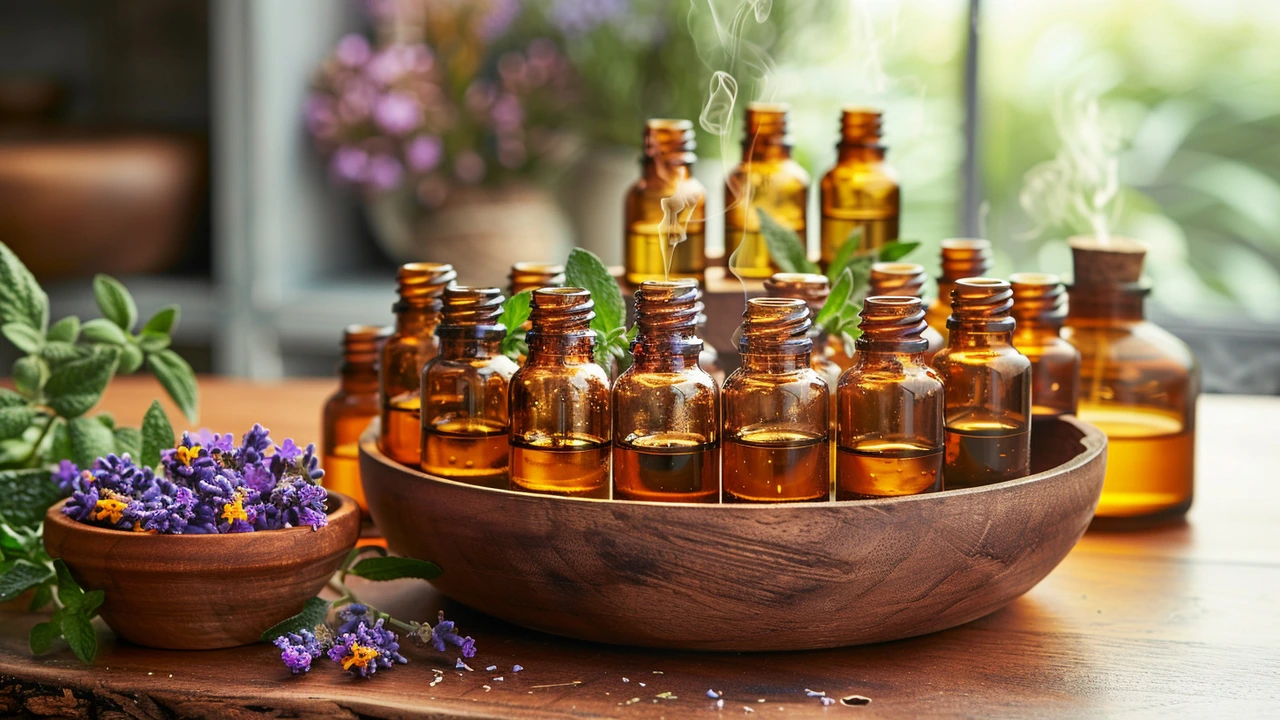Unveiling the Essence of Aromatherapy
Intriguingly, the practice of using aromatic plants for healing dates back to ancient civilizations, including the Egyptians, Greeks, and Romans. These cultures recognized the profound effects of plant essences on the human psyche and body. Fast forward to the 20th century, the term 'aromatherapy' was coined by French chemist René-Maurice Gattefossé, who, after a laboratory accident, discovered the healing properties of lavender oil on burns. This pivotal moment highlights the transition of aromatic usage from traditional to more scientifically recognized applications.
"Essential oils can be seen as the heart and soul of the plant, offering insights into its regenerative, protective, and health-promoting essence," - Elizabeth Jones.Today, modern science continues to explore these profound connections, validating traditional knowledge with empirical evidence.
The Multifaceted Benefits of Aromatherapy
From easing stress and anxiety to promoting sleep and alleviating pain, the benefits of aromatherapy touch on multiple dimensions of well-being. Studies have shown that certain essential oils can significantly impact our physical, emotional, and mental states. For instance,
"Lavender oil has been widely studied for its ability to improve sleep quality and reduce anxiety," according to a study published in the Journal of Alternative and Complementary Medicine.Similarly, peppermint oil is celebrated for its ability to enhance concentration and digestion, demonstrating the versatile nature of essential oils in supporting holistic health.
Key Essential Oils and Their Uses
Within the aromatic treasury, several essential oils stand out for their distinctive properties and benefits. Lavender, known for its calming effects, is just the tip of the iceberg. Peppermint, with its invigorating scent, aids digestion and mental clarity. Tea tree oil, with its antiseptic properties, serves as a powerful tool for skin health and immune support. Additionally, eucalyptus oil is renowned for its respiratory benefits, especially during cold and flu season. Understanding the unique properties of each oil is crucial for maximizing their therapeutic potential.
Application Techniques for Optimal Benefits
The versatility of essential oils lies not only in their varied benefits but also in the myriad ways they can be used. Inhalation, topical application, and diffusion are the primary methods for integrating essential oils into daily life. Proper dilution, especially for topical use, is essential for safety and efficacy.
"When applying essential oils topically, always use a carrier oil to minimize skin sensitivity and enhance absorption," advises aromatherapy expert, Robert Tisserand.Whether diffusing lavender for a restful sleep or applying diluted peppermint oil for headache relief, understanding these application methods enables a personalized aromatherapy experience.
Safety Considerations in Aromatherapy Practice
While essential oils are natural, their potent nature demands respect and caution. Avoiding internal consumption, understanding potential allergic reactions, and recognizing the importance of purity and quality are paramount. Pregnancy, certain health conditions, and the use of some medications necessitate professional consultation before incorporating aromatherapy into a wellness routine.
"It's imperative to source essential oils from reputable suppliers and seek guidance from certified aromatherapy professionals," underlines a report by the National Association for Holistic Aromatherapy.This cautious approach ensures the safe and effective use of aromatherapy.
Integrating Aromatherapy into a Holistic Health Framework
True holistic health encompasses physical, emotional, and mental wellness. Aromatherapy, with its multifaceted benefits, seamlessly fits into this integrated approach to well-being. Pairing essential oils with practices such as yoga, meditation, or massage amplifies their efficacy and supports a balanced lifestyle.
"The synergy between aromatherapy and holistic practices can significantly enhance one's journey towards well-being," states wellness practitioner, Dr. Deepak Chopra.Embracing aromatherapy as part of a broader health strategy opens the door to enhanced well-being and a deeper connection with the natural world.





